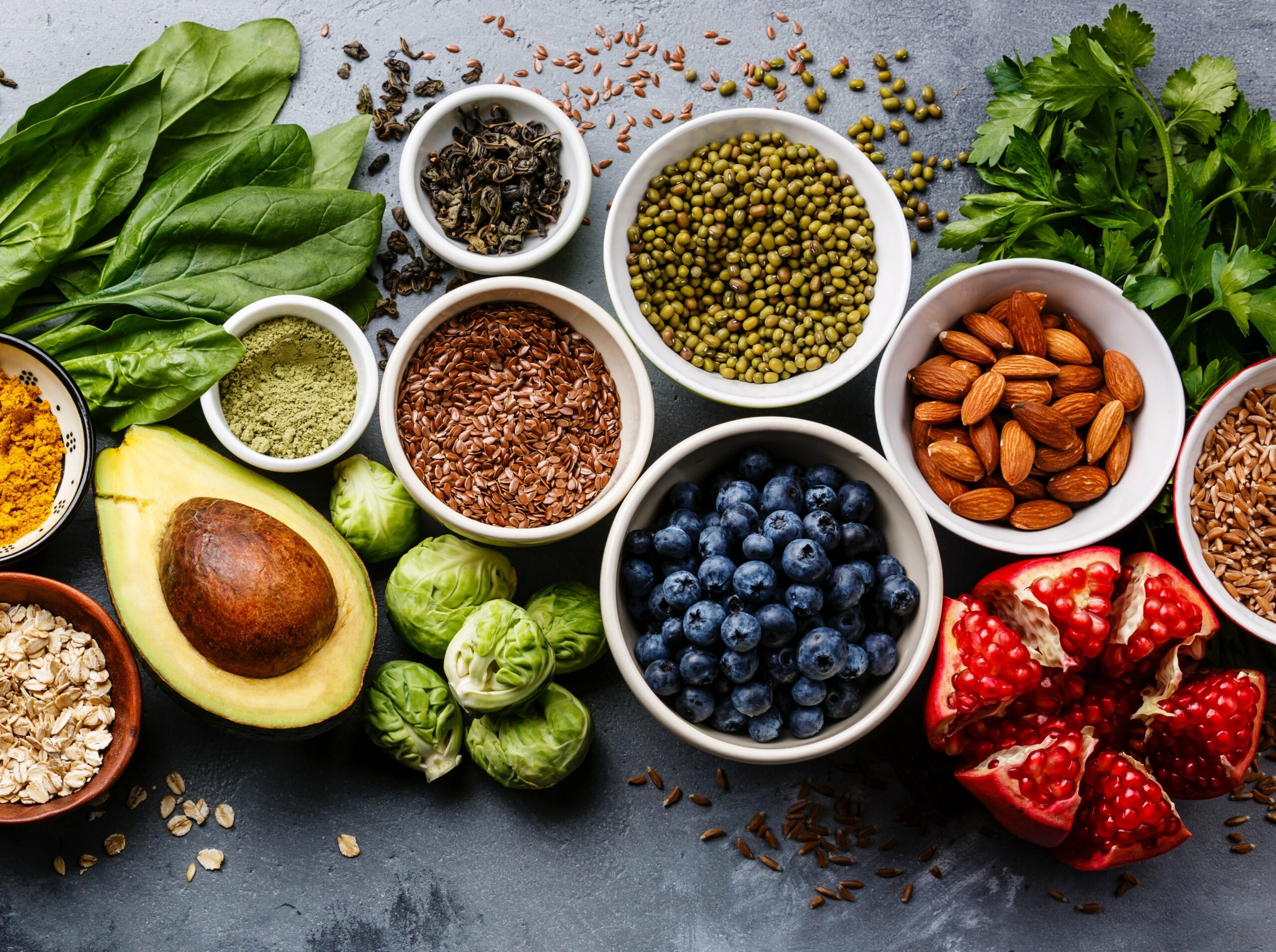Antioxidants
What are the health benefits of antioxidants?
Antioxidants are compounds that help protect your cells from damage caused by free radicals, which are unstable molecules that can harm cells and contribute to aging and the development of various diseases. Here are some of the key health benefits associated with antioxidants:
- Protecting against oxidative stress: Oxidative stress occurs when there is an imbalance between free radicals and antioxidants in the body. Antioxidants help neutralize free radicals, reducing oxidative stress and lowering the risk of chronic diseases such as heart disease, cancer, and neurodegenerative disorders such as Alzheimer’s and Parkinson’s disease.
- Reducing inflammation: Some antioxidants have anti-inflammatory properties, which can help reduce inflammation in the body. Chronic inflammation is linked to various health conditions, including heart disease, diabetes, and arthritis.
- Supporting immune function: Antioxidants play a role in supporting the immune system, helping the body fight off infections and diseases. They can also help reduce inflammation, which is an important part of the immune response.
- Protecting against cancer: Some studies suggest that antioxidants may help protect against certain types of cancer by neutralizing free radicals and reducing oxidative stress. However, more research is needed to fully understand the effects of antioxidants on cancer risk.
- Promoting skin health: Antioxidants such as vitamin C and vitamin E are beneficial for skin health. They can help protect the skin from damage caused by UV radiation, reduce the appearance of wrinkles and age spots, and promote overall skin health.
- Supporting heart health: Antioxidants may help protect against heart disease by reducing oxidative stress and inflammation, improving cholesterol levels, and supporting healthy blood vessel function.
- Protecting eye health: Antioxidants such as lutein and zeaxanthin are important for eye health. They can help protect the eyes from damage caused by free radicals and reduce the risk of age-related macular degeneration (AMD) and cataracts.
It’s important to consume a variety of antioxidant-rich foods, such as fruits, vegetables, nuts, seeds, and whole grains, as part of a balanced diet to reap the health benefits of antioxidants.
What are the health risks of antioxidants?
Antioxidants are generally safe and offer many health benefits when consumed from natural food sources. However, there can be some risks associated with high doses of antioxidant supplements. Here are some potential health risks:
- Interference with medical treatments: Some antioxidants, such as vitamin C and vitamin E, can interfere with certain medical treatments. For example, high doses of vitamin C may reduce the effectiveness of certain chemotherapy drugs, and high doses of vitamin E may increase the risk of bleeding in people taking blood thinners.
- Increased risk of certain cancers: While antioxidants are believed to help protect against cancer by neutralizing free radicals, some studies have suggested that high doses of certain antioxidants, such as beta-carotene and vitamin E, may actually increase the risk of certain cancers in some people. More research is needed to fully understand this relationship.
- Harmful effects of megadoses: Taking very high doses of antioxidant supplements can be harmful and may cause adverse effects. For example, high doses of vitamin C can cause digestive upset, and high doses of vitamin E can increase the risk of hemorrhagic stroke.
- Imbalance of antioxidants: Consuming large amounts of a single antioxidant may lead to an imbalance of antioxidants in the body, which can have negative effects on health. It’s important to consume a variety of antioxidants from different sources to maintain a healthy balance.
- Unknown long-term effects: Some antioxidant supplements have not been well-studied for their long-term effects on health. More research is needed to understand the potential risks and benefits of high-dose antioxidant supplementation.
Overall, it’s best to get antioxidants from natural food sources rather than from supplements, unless advised otherwise by a healthcare provider. Eating a balanced diet rich in fruits, vegetables, nuts, seeds, and whole grains can provide you with the antioxidants you need to support good health without the risks associated with high-dose supplements.
What foods are rich in antioxidants?
Antioxidants are compounds that help protect the body from damage caused by harmful molecules called free radicals. Many foods, particularly fruits, vegetables, nuts, and seeds, are rich in antioxidants. Here are some foods that are particularly high in antioxidants:
- Berries: Blueberries, strawberries, raspberries, and blackberries are all high in antioxidants, particularly anthocyanins and vitamin C.
- Dark Chocolate: Dark chocolate is rich in antioxidants, particularly flavonoids.
- Pecans: Pecans are one of the nuts with the highest antioxidant content.
- Artichokes: Artichokes are a good source of antioxidants, particularly quercetin and anthocyanins.
- Kale: Kale is a leafy green vegetable that is high in antioxidants, particularly vitamin C and beta-carotene.
- Spinach: Spinach is another leafy green vegetable that is rich in antioxidants, particularly lutein and zeaxanthin.
- Red Cabbage: Red cabbage is high in antioxidants, particularly anthocyanins.
- Beans: Beans, particularly red beans, pinto beans, and black beans, are high in antioxidants.
- Beets: Beets are a good source of antioxidants, particularly betalains.
- Oranges: Oranges are high in vitamin C, a powerful antioxidant.
Including a variety of these antioxidant-rich foods in your diet can help protect your body from oxidative stress and reduce the risk of chronic diseases.




